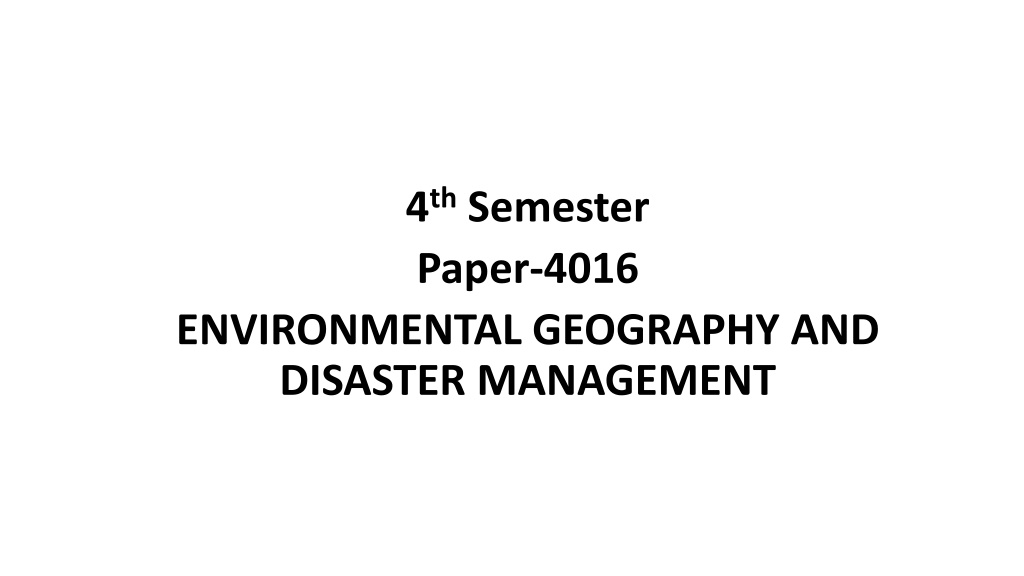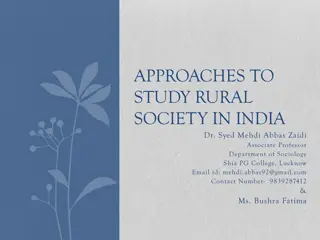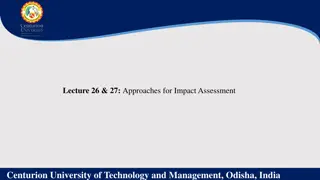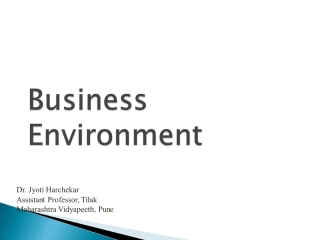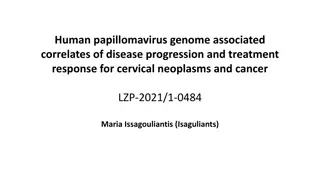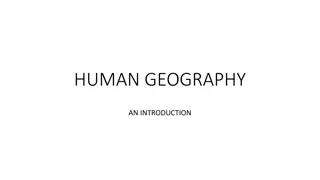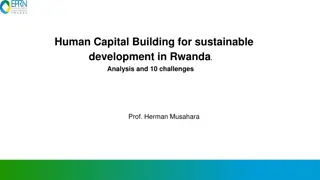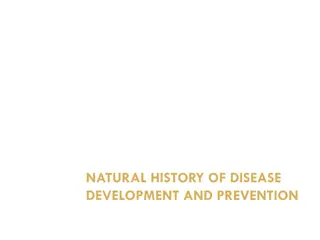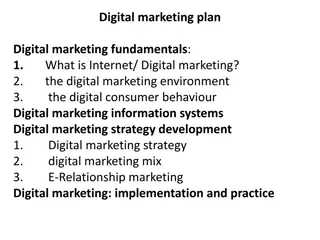Approaches in Studying Human-Environment Relationship
Explore different approaches to understanding the dynamic relationship between humans and their environment, including deterministic, teleological, possibilistic, and economic deterministic perspectives. These approaches shed light on how human actions and interactions with the environment have evolved over time, shaping our understandings and management of environmental resources.
Download Presentation
Please find below an Image/Link to download the presentation.
The content on the website is provided AS IS for your information and personal use only. It may not be sold, licensed, or shared on other websites without obtaining consent from the author. Download presentation by click this link. If you encounter any issues during the download, it is possible that the publisher has removed the file from their server.
Presentation Transcript
4thSemester Paper-4016 ENVIRONMENTAL GEOGRAPHY AND DISASTER MANAGEMENT
APPROACHES FOR THE STUDY OF HUMAN ENVIRONMENT RELATIONSHIP The study of relationships between man and environment has always been a focal theme of environmental science and facets of man- environment relationship changed through time with the development of human society and the dimension of environment. As the man become social, economic and technological, he broadened his environment by creating his own environment through his design and skill to have provision for better food, shelter, access and comfort The man environment relationships, thus, can be perceived and evaluated in a variety of ways and approaches as followings:
A. Deterministic Approach: This approach is based on the basic tenet of earth made man and pays more attention on the complete control of physical environment on man and his activities. In fact, according to deterministic perspectives of man-environment relationships, man is subordinate to natural environment as all aspects of human life viz.physical (health and comfort), social, economic, political, ethical and aesthetic etc. not only depend but are dominantly controlled by physical environment. B. Teleological Approach: Teleological Approach is based on religious faith of man being superior to nature and all other creatures. This school emanated from the teaching of Judeo-Christian religious tradition which preached that man is superior to all creatures and everything is created for his use and enjoyment .
This ideology of man- environment / nature relationship fostered the man to exploit natural resources and to subdue nature without considering the after effects of reckless and uncontrolled plundering of natural resources. C. Possibilistic Approach: Possibilistic Approach to the study of man-environment relationships emerged through the criticism of environment determinism and overtone of teleological approach. Right from the very inception of the school of environmental determinism there was dissenting voice raised by those who believed that no doubt physical environment influences man and his activities but there is ample scope for man to change the environment so much so that it becomes suitable for man and his society.
Possibilists were quite aware that man cannot fully tame the nature and is not always victorious. Possibilists replaced more deterministic terms control by influence and influence by more moderate terms response or adjustment . D. Economic Deterministic Approach: This approach is based on the basic ideology of Man s mastery over environment and continued economic and industrial expansion through the application of modem technologies.The basic thesis of the growth (affluence) school is that because economic growth is required for political, social and economic stability, the quality of environment normally assumes lower priority in formulating planning proposals and in long - term planning because the deterioration of the environment is generally protracted and socially less oblique than a deterioration in the economy.
It may be pointed out that this extreme concept of economic determinism led to rapacious exploitation of natural resources in the western developed countries and thus created most of the environmental and ecological problems of global dimension. E. Ecological Approach: Ecological Approach to the study of man- environmental relationships is based on the basic principle of ecology which is the study of mutual interactions between organisms and physical environment on the one hand and interactions among the organisms on the other hand in a given ecosystem. Thus, man is considered as an integral part of nature/ environment It is obvious that the relationship between man and environment is two directional as the environment affects and influences man and in turn man also influences and modifies the environment. This type of mutual interactions and relationship between man and environment is symbiotic in character.
The present nature and complexity of socio-ecological systems are heavily contingent on the past; we cannot fully appreciate the present condition without going back decades, centuries or even millennia. As we are witnessing today with global warming, current societal actions may reverberate, in climatic and many other ways, for centuries into the future. As such, there is the real danger that our visions of the future are becoming unconstrained by knowledge of what has already occurred, at least in part because information about human-environment interactions in the historical past has not been well organized for this purpose or properly utilized.
If we continue to operate in ignorance or denial of this integrated historical understanding, we will be running in risk. But if we can adequately learn from our integrated history, we can create a sustainable and desirable future for our species. The role of most primitive biological or physical man in the functions of natural environmental system was fundamentally that of user of environmental resources and thus he played the role of a factor of the environment but as the skill and technology of man developed with cultural development his roles towards natural environment also changed progressively such as from user through modifier and changer to destroyer of the environment.
Thus if we look at historical progression of man-environment relationships it becomes clear that purely natural relationship between physical primitive man and natural environment during prehistoric period has changed to hostile relationship between technological man and the environment at present. This substantial change and shift in the nature and magnitude of man s interactions with the natural environment has given birth to numerous environmental problems of serious consequences because the changes effected by man in the environment have become unadjustable by the inbuilt selfregulatory mechanism of the natural environmental system/ecosystem
